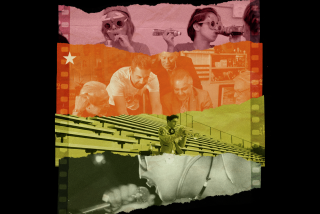Running the Show: ‘Vida’s’ Tanya Saracho dreams up worlds when not posting dance videos
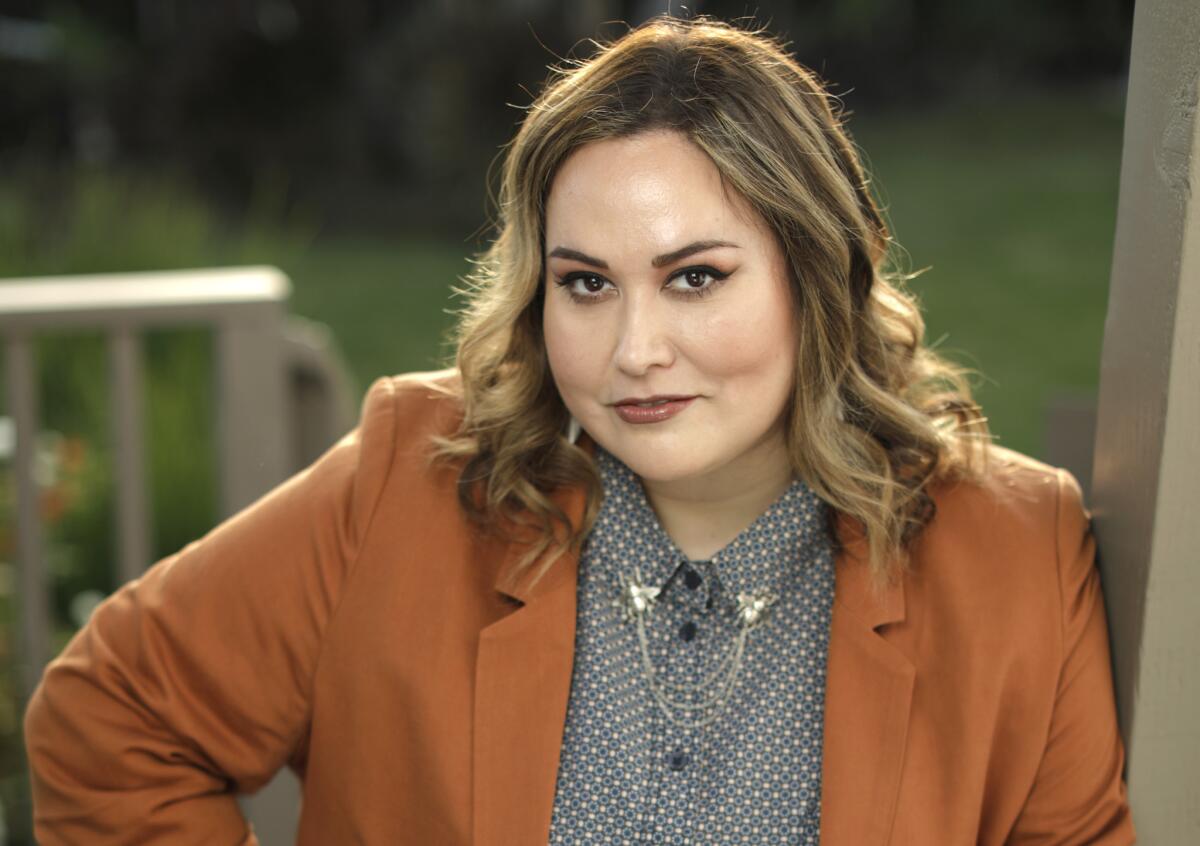
In this series, Running the Show, The Times speaks with showrunners of your favorite TV programs about breaking into Hollywood, being the boss and more challenges of the job.
Tanya Saracho, the creator of Starz’s Latinx-fronted “Vida,” is on a mission to keep her show going.
The half-hour series, which revolves around two Mexican American sisters who return to their Eastside neighborhood following their mother’s death, garnered praise from critics in its first season for its sociopolitical commentary and exploration of identity. But its ratings were modest.
The series returns this week with new viewing options for fans. All 10 episodes will be available to binge instantly on the premium network’s app starting Thursday. Those who prefer the traditional, weekly linear experience can catch its premiere on Sunday. Whatever the preference, Saracho hopes viewers show up.
As fans still grieve the Netflix cancellation of “One Day at a Time” and others prepare for the culmination of the CW’s “Jane the Virgin,” the departures highlight the dearth of Latinx programming on television.
“I don’t have a third season secured,” Saracho says. “I don’t know what will happen to us. The thing is that with Season 2, people have to watch. Because at the end of the day, it’s a business. They’re going to have to be like, ‘OK, this was a good gamble. We gambled on this audience and they showed up’ … We’re like any show that is dependent on ratings.”
Saracho nurtured her writing as a playwright in Chicago before making the jump to TV in 2012. She had staff jobs on shows like Lifetime’s “Devious Maids,” HBO’s “Looking” and “How to Get Away With Murder” on ABC. But “Vida” marks Saracho’s first series as creator and showrunner.
Inside the office of the West Hollywood home she recently moved into, Saracho talked about how her writing process has changed since working in TV, her efforts to give opportunities to people of color and the pressure to be excellent just to keep a seat at the Hollywood table.
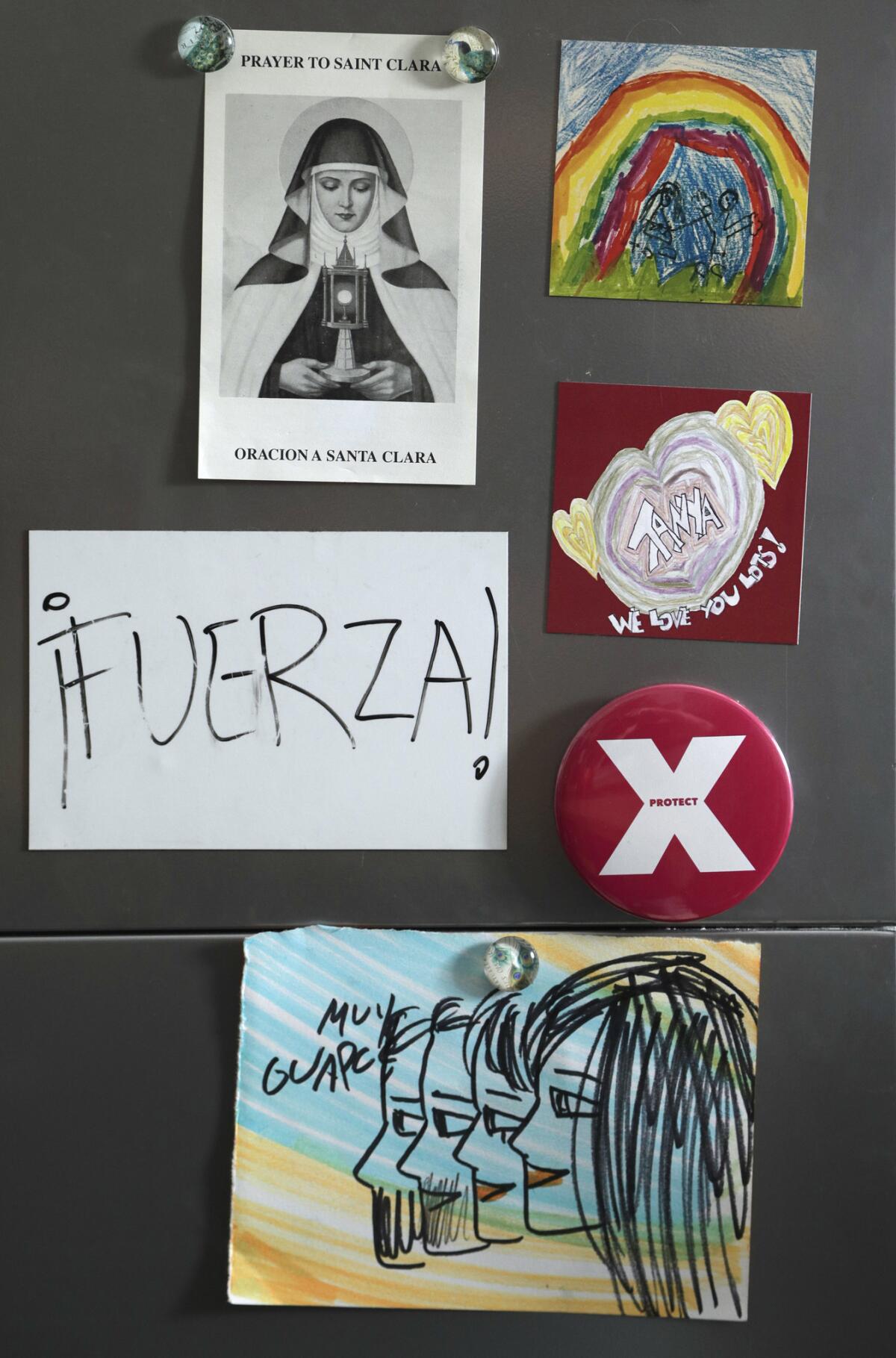
On the transition from theater to TV
I didn’t know how to write TV when I got here.The first year was about learning Final Draft. I’d never seen an outline before. But I thought maybe I could make some money so I could keep doing my theater stuff. It was like, whatever I do, the end purpose is theater. I didn’t know TV was going to be so time consuming. My first year as a TV writer, I remember the No. 2 of that first writers’ room told me: “You know your theater stuff is going to be tainted.” I was like, “Never! I am a theater artiste.” But he was so right. My scenes are different. The way I tell the story is different.
TV just absorbed me. I didn’t plan for it. I know there are other writers who have been able to navigate both. I’m done with theater, creatively. I didn’t want to be. But I can’t dream plays anymore. Now, I dream stories that keep going. It’s weird.
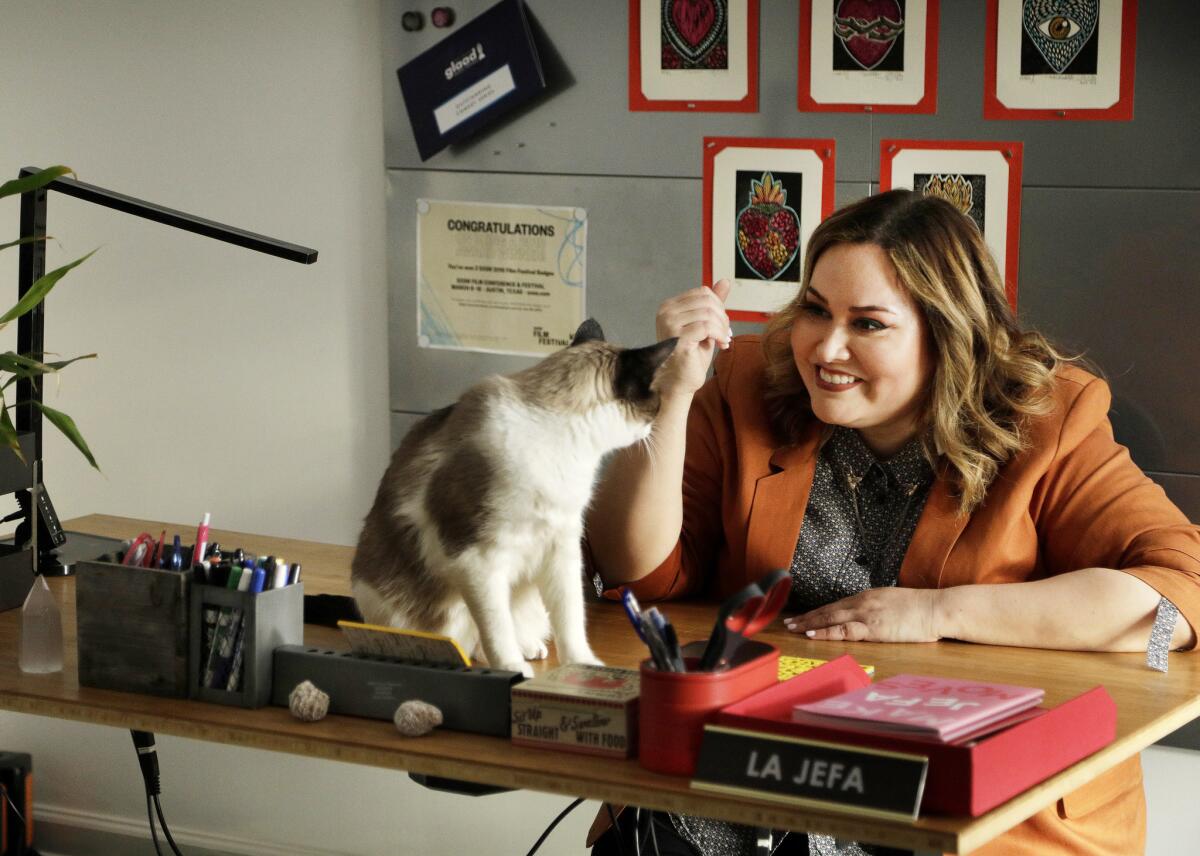
TV and the Latinx ‘privilege’
We have been absent from the narrative for so long. And that is not a Hollywood thing. That is an American thing. There are a lot of reasons why we have not had visibility or, dare I say it, value in this country — social reasons, economic reasons, immigration reasons that have contributed to this decade after decade. To have this opportunity is a privilege — it shouldn’t be.
We should be able to take up space and our shows should be supported. Not just one. A ton of them. I should not be the only one. But also, it is as an artist awesome that I get to tell my story. So it’s twofold. I resent it a little bit because you have to be so grateful that you get to do this show because our people don’t get this opportunity. And that’s what sucks.
I wish it wasn’t so. But it’s not just Hollywood. A lot of America doesn’t see our worth. Even though these girls [the two main characters of “Vida”] are representing Americans. They’re third generation — second-, third-generation Americans. But they see “z” at the end of our last name, they see the color of our skin. Because we’re suffering from that problem of visibility and agency and access in this country, it feels like a great privilege. I wish we didn’t have to use that word.
The thing that keeps her from writing
Instagram. Posting dance videos of myself on Instagram. I don’t have a brand that I’m trying to build. If I have an anxiety attack, I post an Insta story as it happens. I went to New York for the Tribeca Film Festival and some fans were asking for autographs and one was like, “Hi, you’re so stressed out, I brought you these edibles.” And I’m like, hmm, I should edit myself, maybe? Because people were thinking I’m a mess — which I am but, I’m not. Especially now that I’m on hiatus, all I put up is my cat. And people have opinions on my cat. Social media is weird.
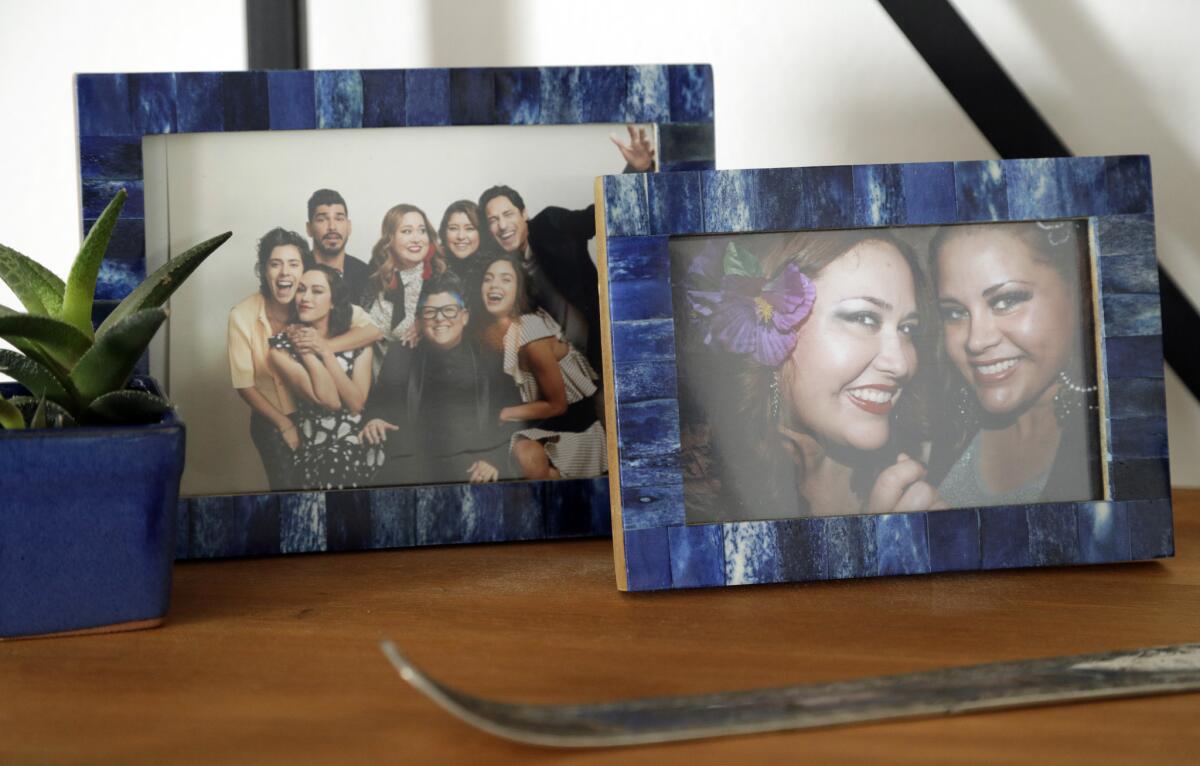
Building a content empire
Right now I’m watching Lena Waithe and Ava DuVernay and Issa Rae and they have a really good thing going. They’re opening so many doors for their community. I want to be able to do that. We don’t have one of us up there. Somebody had to give me, not just permission, but the suggestion. There are not a lot of Latina creators with overalls.
You need people to encourage you to dream up these worlds. Now I’m dreaming it. And I think I should be dreaming it. Power can be really good and we have been powerless for so long. For us, being just good is not an option. Look at the shows we’ve got. We have to be excellent. Good is not enough. And that can be exhausting. White men don’t have the burden of being the ambassadors for an entire people and having to represent the diaspora.
On her next passion project: “Brujas” (Witches)
I hope we get to do it. In Chicago, a lot of my circle was Afro-Latinx — in my theater company, my friends, people I dated. They took me to their señoras too, who were also Afro-Latinx. It just opened up a whole world. Walking in step with them, I realized how much we — Latinx — police Afro-Latinx, and also how they were policed by black American culture. Any time Latinx had access, it felt like the voice that was left off is the Afro-Latinx voice.
And with magic — I mean, this town has dealt with it in such a Eurocentric way. Movies I love, like “Practical Magic” and “The Craft,” and shows that are great like “Charmed” — it’s all Eurocentric. It’s all based in Europagan belief systems. Never has proper credit been given to the Yoruba-based traditions that were imported when the slave trade started and that are older than paganism. And they affect so much of the Caribbean. I just wanted to re-shift the narrative.
Magic does not belong to white people. Every time we see Santeria in a movie, it’s like a joke or horror, voodoo zombies. These four millennial Afro-Latinas [in the show] will be honoring that legacy. But also, they’re American girls in Chicago.
I had a mini writers’ room full of Afo-Latinx writers. The first exercise when we opened the room, I said: “If you were watching this show, what would you want it to be about? It took hours before [we] said it was about witchcraft. We wrote things like colorism, pelo bueno, pelo malo (good hair, bad hair) — all these things.
The standoff between Hollywood writers and agents
We’re in limbo. I love my agents, [but] these agents, in practice, are a problem. Obviously we all took the stance. I hope it gets sorted out. And everyone complains about it and everyone’s scared, but we stand with the union because it’s the right thing. I put out on Twitter the #WGAboost and I was like, I don’t have a third season but I’ll read people. And most of the people are not even in the WGA. But I already vowed to read them. I’m doing my part in this. It might last a while and we need to hold on. I do worry about the lower-level writers. The thing is, for me in practice, I hardly ever use any lists from agents, including my own agency. I find us.

On who or what inspires her
That needle moves artistically. I’m always inspired by [Mexico’s philosopher, musician and writer] Sor Juana Inés de la Cruz and how she had to feel and suffer through her queerness and her talent. But also not positive things inspire me. If I get a third season, I really want to touch on the subject of immigration because I just feel very helpless. And I know others around me feel helpless too. If I have this platform around me, I hope I can at least shed some light.
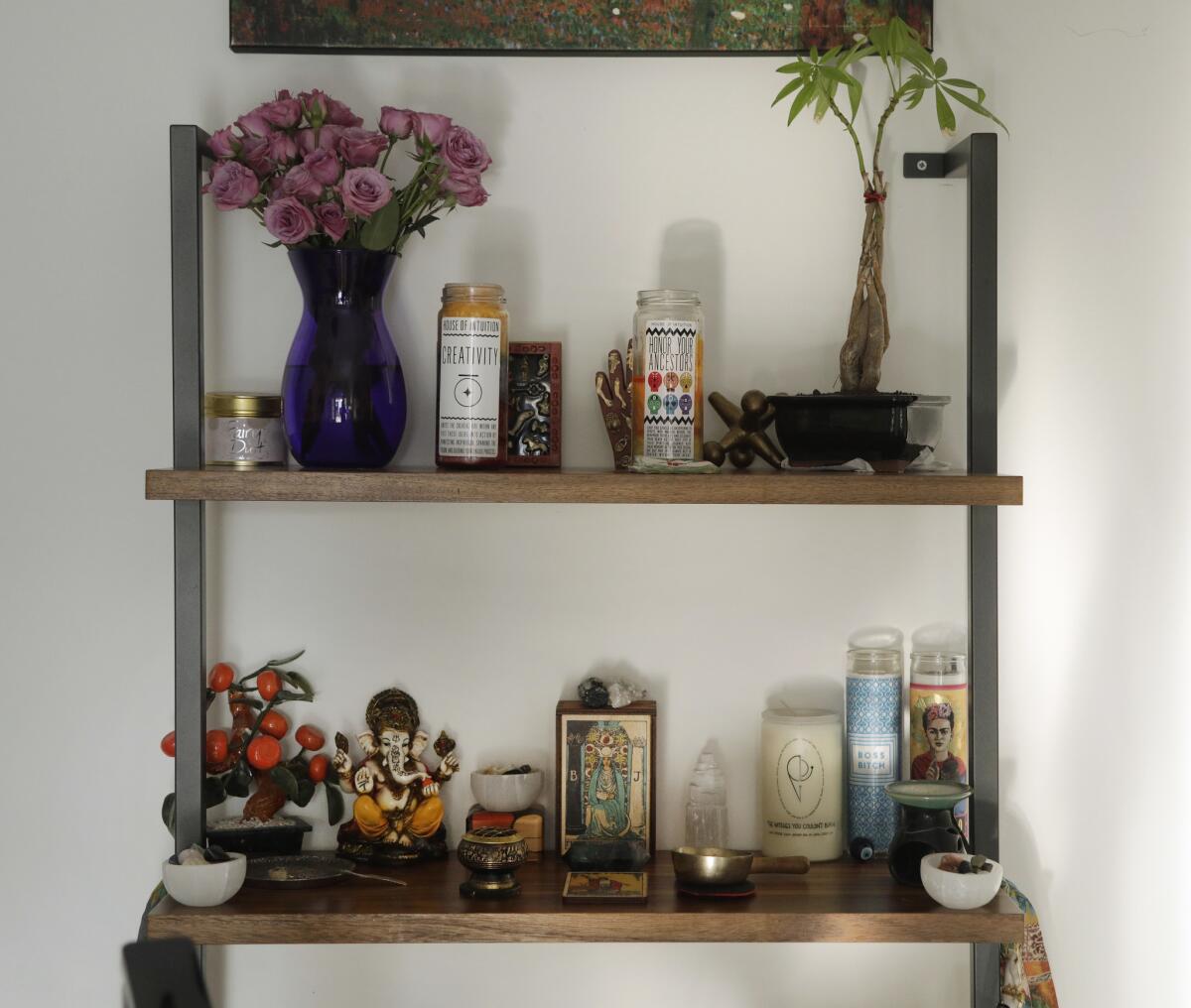
Twitter: @villarrealy
More to Read
The complete guide to home viewing
Get Screen Gab for everything about the TV shows and streaming movies everyone’s talking about.
You may occasionally receive promotional content from the Los Angeles Times.


